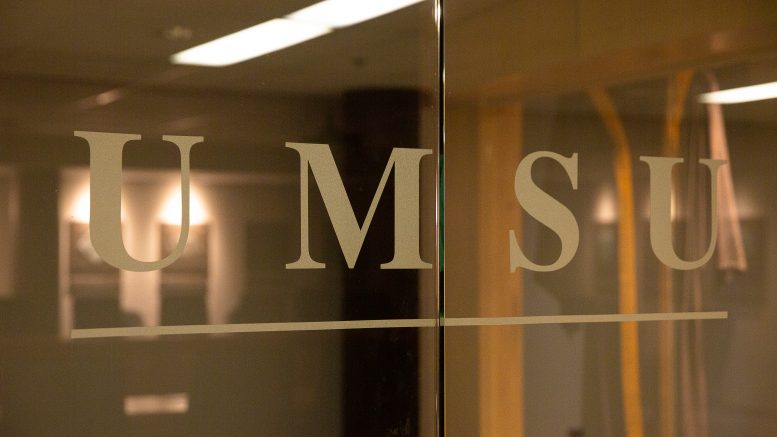The UMSU budget for the 2024-25 fiscal year was presented March 14 at the board of directors (BoD) meeting.
Vice president finance and operations (VPFO) Vaibhav Varma presented the budget in order for approval at the March 28 meeting.
The fiscal year runs from May 1 to April 30, and the budget is written in projections, or estimates of what numbers will be, Varma said.
The budget projects a revenue of $2,549,149 from the five UMSU-owned businesses, collected fees and commissions and operational revenue. The total budgeted expenses is $2,628,532, which ranges from executive and administrative salaries to operational expenses.
This leaves the union with a projected overall deficit of $79,384 for the 2024-25 year. This contrasts with the 2023-24 budget, which predicted a total surplus of $38,363.
Varma said the revenue that last year’s budget planners were hoping for was “dramatically too high.” He said keeping the budget “modest” allows space for businesses to generate a greater income.
VPFO-elect Carolyn Wang said she thinks “it’s better to keep everything conservative.” Otherwise, it “just causes disappointment.”
Student fees make up over 70 per cent of UMSU’s projected revenue. The number is created from the consumer price index — or number of students the university projects will enroll the following year — and the amount each undergraduate student pays in UMSU fees. The estimated number for the 2024-25 fiscal year is $1,849,595.
One of Wang’s campaign promises was to, if elected, allow student to opt out of certain UMSU fees. When asked if this goal would be a healthy financial choice for the union, she said it would vary on a “case-by-case basis” and that students who need financial assistance for paying student fees are her “utmost priority.”
Wang said the projected deficit could be helped if the union “cut[s] back on some expenses,” such as holding events at less expensive venues.
Of the five businesses UMSU owns — GPA’s, IQ’s, Degrees, UMCycle and VW Social Club — VW’s is projected to have the largest revenue decrease of $56,692 from $67,098 to $10,406.
Varma said this “drastic change” was in part due to the number for this fiscal year’s similarity to campus life pre-COVID-19, while the “drinking culture on campus has decreased dramatically” in the current student body and the cost of labour has risen.
Wang said she thinks the current operating hours of VWs “are not very popular with students.” To attempt to fix this, Wang said she would revise the hours, accommodate students’ dietary needs and curate menus to what they want to see.
She reiterated the importance for her that the union — which is classified as a non-profit organization — make a profit off its businesses. Varma said that any profit the union incurs in a given year will be placed in a retainer account.
Wang knows that businesses lose money if people do not buy their products. She said the key to encouraging profit is to “drive up demand.” That way, UMSU businesses can lower prices and still make a profit.
The budget will be voted on at the March 28 UMSU board meeting. Students can reach out to Varma at [email protected] to ask questions related to the budget.



